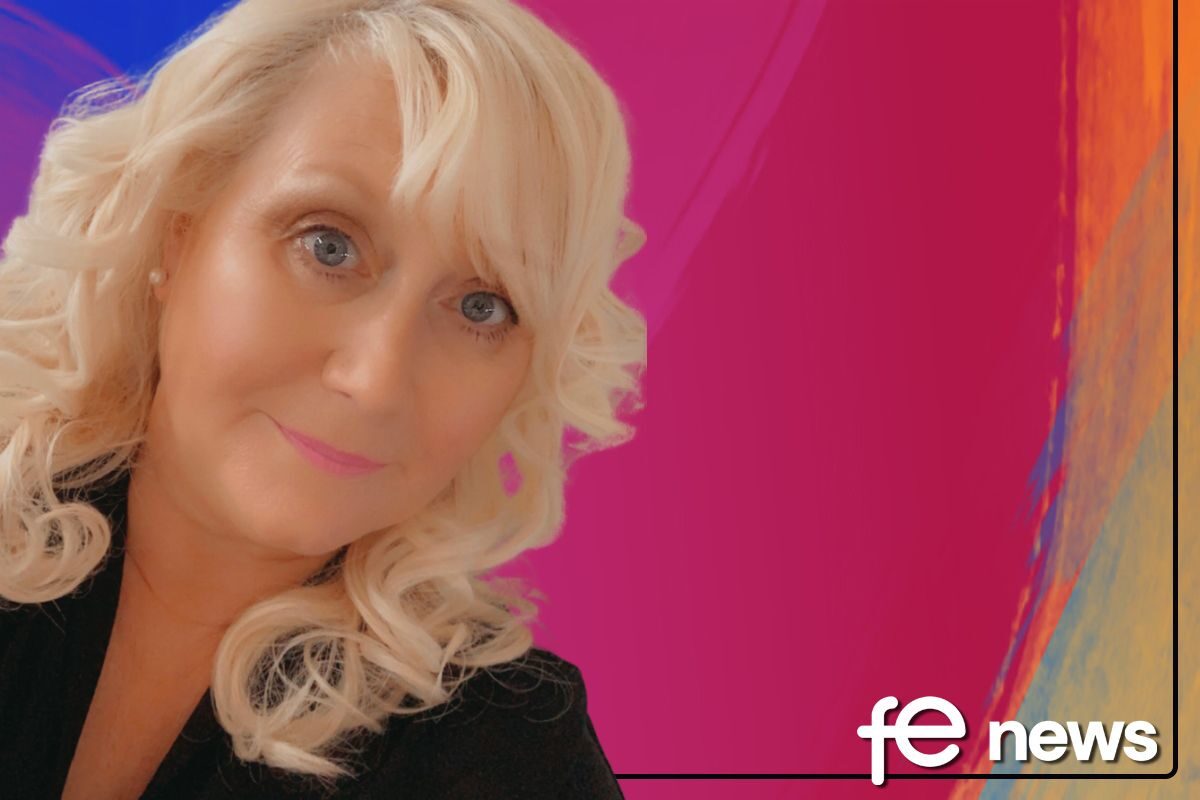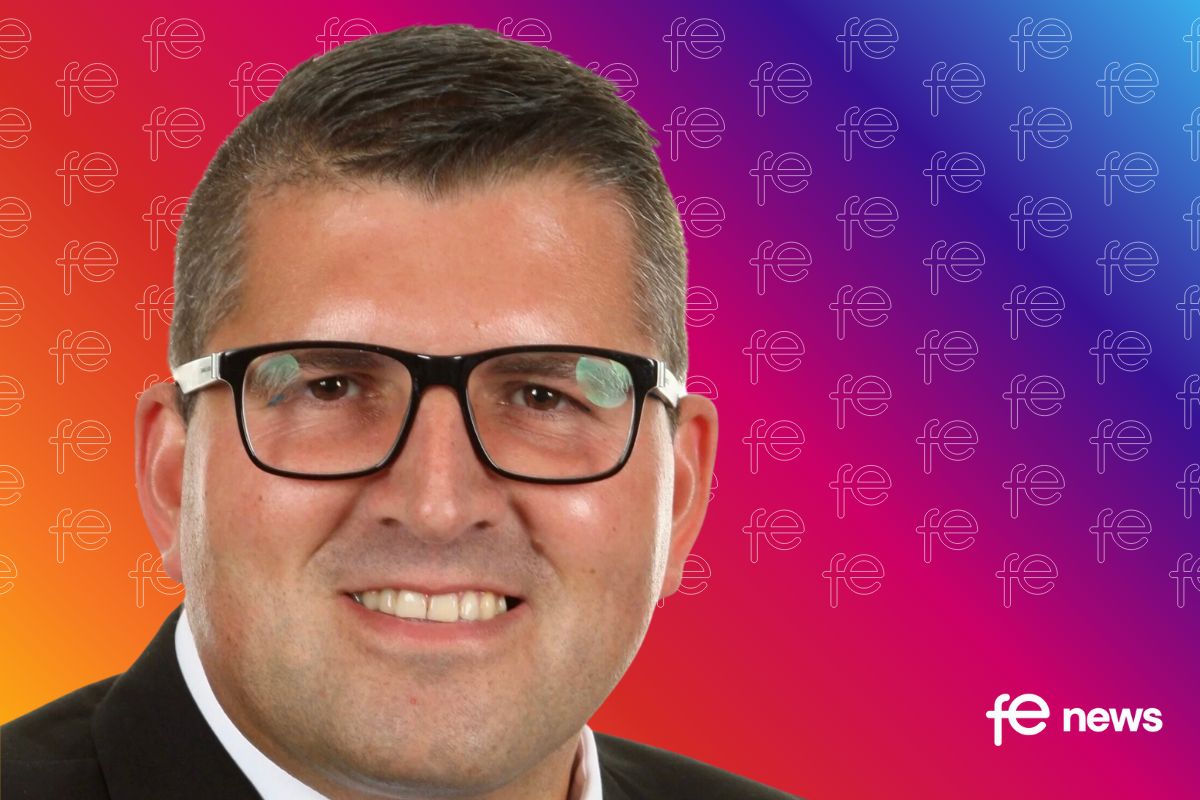Being: The Essence of Professional Identity

In a series of three articles: ‘Being, Belonging, and Flourishing as an FE Professional’ Annie Pendrey delves into the intricate journey of Further Education professionals as they navigate the exploration of their professional identity and professional agency, moving from being, belonging to flourishing as an FE professional. This first article explores how Being an FE Professional.
I recall literally ‘falling’ into FE, having been asked to cover a one-hour, Level 1, Early Years session. At the time, I had taken a leap of faith and left my teaching assistant role to undertake supply work whilst completing my BA in Early Childhood Studies. I recall standing in front of the class, thinking I can’t do this and my inner voice telling me, ‘You are a teaching assistant’!
That one-hour cover session soon became several hours teaching, as I completed my degree and embarked upon my PGCE. However, despite my qualifications and subject specialism, I continuously battled with my professional identity. Daily, I tried to navigate the interrelationship between my teaching assistant identity to that of the FE tutor/professional. I felt I had bungee jumped into FE and instead of undoing the safety harness and trusting my values, beliefs, and educational philosophy, I hung on tight to the harness that was my teaching assistant identity. My ‘being’ was a slow reflective process.
Professional Identity
Professional identity is a complex and multi-faceted process. Professional identity is not a fixed or static construct, it changes over time through our personal and professional development opportunities. Our professional identity is a journey of self- discovery and reflection, where we continually ask ourselves, ‘who am I’ and “what do I do” (Mockler, 2020). Moreover, Sachs (2005) suggests that professional identity is instrumental in guiding us as professionals to develop our ideas of ‘how to be’ and ‘how to act’ in our classrooms.
Capturing our self- reflections and the reflective lens of our colleagues and learners plays an important role in shaping of our professional identities. These mechanisms help shape how we frame our professional identity encompassing our subject specialism, our professional competencies, and our lived experiences. Day et al., (2006) agrees that introspection and self-reflection is essential in our quest to discover our authentic self: our being.
Being an FE Professional and our Identity
Whilst the definition of a professional might include the words, responsible, knowledgeable, autonomous and organisation, how as FE professionals do we develop our professional identities?
Fletcher et al., (2015) suggests that the professional identity of an FE professional has always been a problematic issue and one that many Government changes has sought to address. One significant change was the introduction of Institute of Learning (IFL). I recall my interaction with IFL with mixed emotions, the anguish and pressure of what felt like additional work, mixed with the joy of reflecting upon my professional progress and the evolving of my professional identity, my being.
For those of you who are not aware of IFL, IFL existed between 2007 – 2012 and all FE professionals were obliged to sign up to this membership body. IFL required all FE professionals to log their professional development and to reflect in and on action. IFL claimed to exist as a professional body to support its members, to guide and support FE professionals to achieve excellence. IFL also offered levels of membership depending upon your teaching qualifications and experiences, offering the FE professional the following nominals to add to their professional identity ranging from Associates (AIfL), these being FE professionals’ part qualified having a Level 3 or 4 teaching qualifications to Members (MIfL), members who held a full teaching qualification at level 5 or above through to Fellows (FIfL) who held a Master’s degree and above. However, following an independent review of FE professionalism, IFL ceased operating in 2014.
IFL may no longer exist, but I still have my IFL card! I recall spending hours reflecting and logging my CPD. I also spent a vast amount of time supporting my colleagues to upload their CPD evidence and to write reflectively. The question is, did this process support my professional identity and that of my colleagues? Did this collective discourse shape our professional identities?
Sfard and Prusak (2005, p,15) suggest that “collective discourses shape personal worlds individual voices combine into the voice of a community”. In agreement, Holland (2001) leads us to reflect upon how our professional identities are constructed by individuals within such discourses. This leads me to reflect upon how as FE professionals we move from being to belonging. How do we become a part of professional memberships, societies, and research networks where we can share our professional identity biographies and feel a sense of belonging?
By Annie Pendrey
Annie is an established author who is currently writing a series of textbooks to support the T Level in Education and Early Years. She is the author of ‘The Little Book of Reflective Practice’ and ‘Reflection and Reflective Spaces in the Early Years’.
Annie is a freelance writer, educational consultant, external examiner and on a journey to becoming Dr P
FE News on the go…
Welcome to FE News on the go, the podcast that delivers exclusive articles from the world of further education straight to your ears.
We are experimenting with Artificial Intelligence to make our exclusive articles even more accessible while also automating the process for our team of project managers.
In each episode, our thought leaders and sector influencers will delve into the most pressing issues facing the FE sector, offering their insights and analysis on the latest news, trends, and developments.
References
Day, C., Kington, A., Stobart, G. and Sammons, P. (2006). ‘The personal and professional selves of teachers: Stable and unstable identities’. British Educational Research journal. Vol. 32(4), pp. 601-616.
Fletcher, M., Lucas, N., Crowther, N., & Taubman, D. (2015). The further education workforce. in A. Hodgson (Ed.), The coming of age for FE? London: Institute of Education Press.
Goodwyn, A. (2010). The expert teacher of English. London: Routledge.
Holland, D. (2001). Identity and Agency in Cultural Worlds. London: Harvard University Press.
Mockler, N. (2020). Historical Thinking for History Teachers. Oxon: Routledge.
Sachs, J. (2005). Connecting policy and practice: Challenges for teaching and learning in schools and universities. London: Routledge.
Sfard, A., & Prusak, A. (2005). Telling identities: In search of an analytic tool for investigating learning as a culturally shaped activity. Educational Researcher. Vol 34(4), pp. 14-22.











Responses